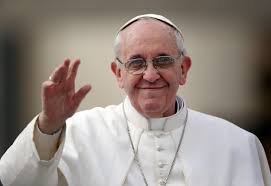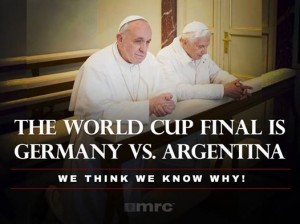
Markets and globalization have lifted billions out of poverty and lessened global inequality. So what’s behind the pope’s agenda?
Stephanie Slade| Sep. 21, 2015 6:00 am
He has been called the “slum pope” and “a pope for the poor.” And indeed, it’s true that Pope Francis, leader to 1.3 billion Roman Catholics, speaks often of those in need. He’s described the amount of poverty and inequality in the world as “a scandal” and implored the Church to fight what he sees as a “culture of exclusion.”
Yet even as he calls for greater concern for the marginalized, he broadly and cavalierly condemns the market-driven economic development that has lifted a billion people out of extreme poverty within the lifetime of the typical millennial. A lack of understanding of even basic economic concepts has led one of the most influential and beloved human beings on the planet to decry free enterprise, opine that private property rights must not be treated as “inviolable,” hold up as the ideal “cooperatives of small producers” over “economies of scale,” accuse the Western world of “scandalous level[s] of consumption,” and assert that we need “to think of containing growth by setting some reasonable limits.”
Given his vast influence, which extends far beyond practicing Catholics, this type of rhetoric is deeply troubling. It’s impossible to know how much of an impact his words are having on concrete policy decisions—but it’s implausible to deny that when he calls for regulating and constraining the free markets and economic growth that alleviate truly crushing poverty, the world is listening. As a libertarian who is also a devout Roman Catholic, I’m afraid as well that statements like these from Pope Francis reinforce the mistaken notion that libertarianism and religion are fundamentally incompatible.
https://reason.com/blog/2015/09/21/if-pope-francis-wants-to-help-the-poor-h




